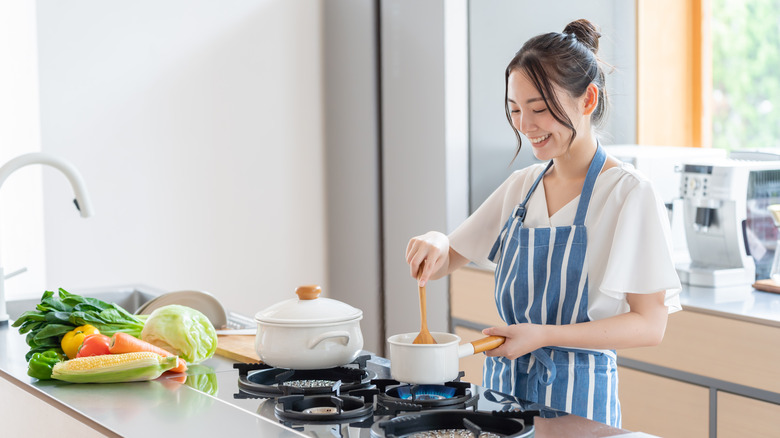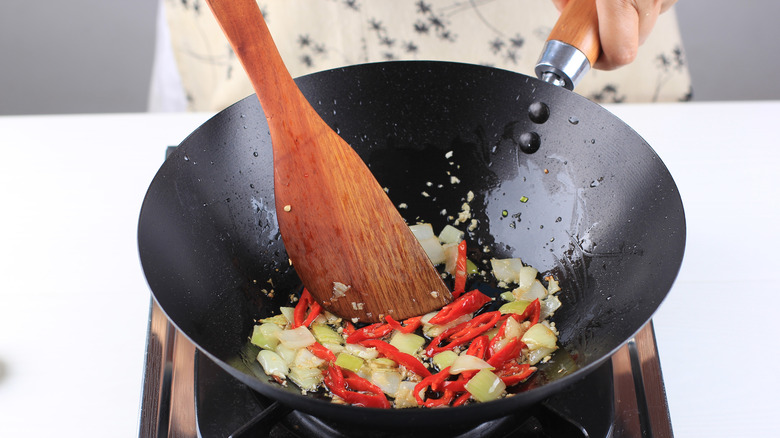The Unhealthy Mistake You Might Be Making When Cooking Vegetables
Vegetables are an essential source of fiber, vitamins, minerals, and powerful antioxidants. But the way you cook them can affect how many nutrients they retain before being eaten (via VegKitchen). While it's no secret that the nutrient content of food items can be altered during the cooking process, overcooking vegetables can result in significant nutrient loss. Since many nutrients in vegetables are heat-sensitive and water-soluble, overcooking them in boiling water can cause the nutrients to leach out of the vegetable.
"What happens is that when you cook vegetables, this affects the amounts and the availability of those nutrients in the vegetables," Public Health Nutritionist Charlotte Morrison told Queensland Health. "So, if you're over-boiling them, then you will lose some of the nutrients." However, she adds that one shouldn't just immediately adopt a raw diet, and there are some benefits of the cooking process. "When you cook some vegetables, the nutrients might be better available for the body. If there's a vegetable that's quite tough, take carrots as an example, cooking the veggies softens them, so that helps the body access the nutrients in the vegetables."
So, how should you prepare vegetables for optimal nutrient retention?
Some cooking methods are better than others for retaining nutrients
Fortunately, it's possible to prepare foods in order to get the most nutrient value from them (via Healthline). For instance, if boiling your vegetables, consider consuming the water they're boiled in. Think of all the delicious soups and stews you could make. Additionally, don't be afraid to use your microwave. Due to the short cooking time, it's a preferable method for nutrient retention as the vegetables are exposed to heat for less time. Do you love steamed food? Consider the steaming method for things like broccoli and spinach to increase vitamin C retention. Lastly, try roasting and baking, as these methods have minimal impact on nutrient loss.
Other prep considerations include leaving the peel and skins on your vegetables, according to Healthline. The most nutrient-dense and fiber-rich parts of vegetables are actually in their skin. Also, consider reducing overall cooking times and cutting vegetables after cooking them rather than before. This helps reduce heat exposure and thus overall nutrient depletion.


